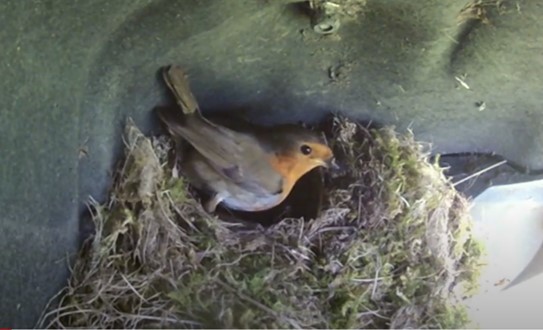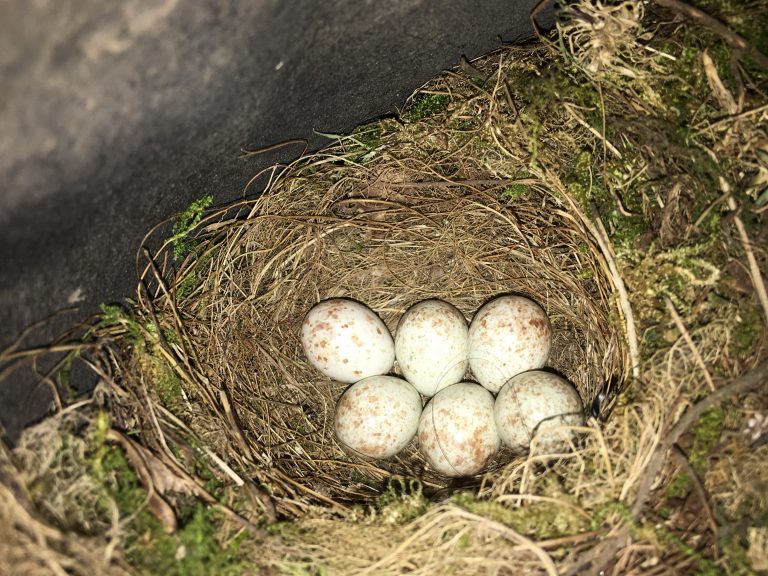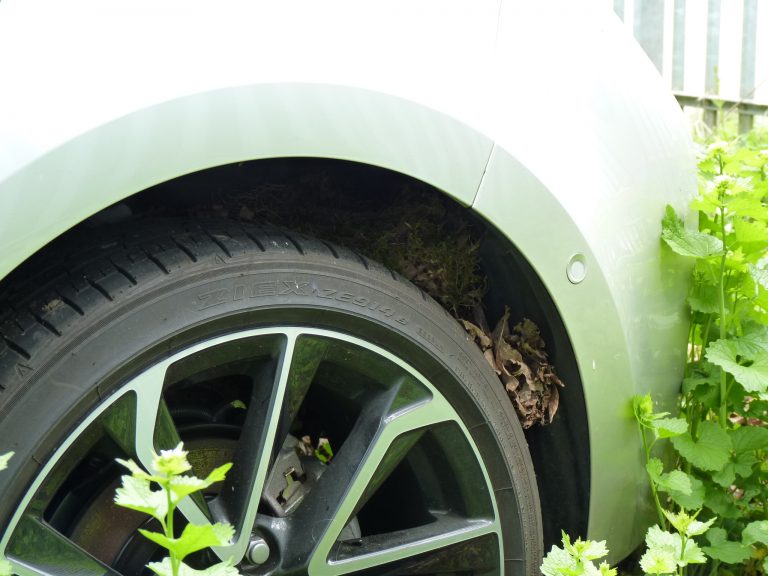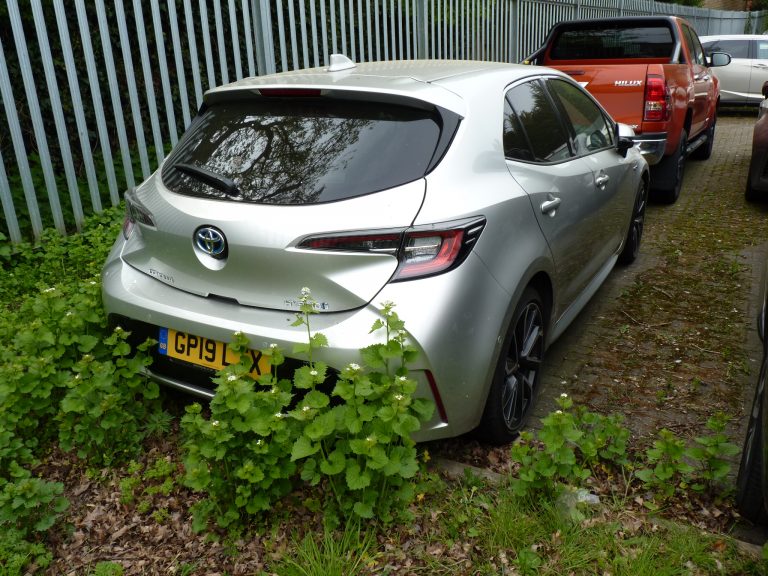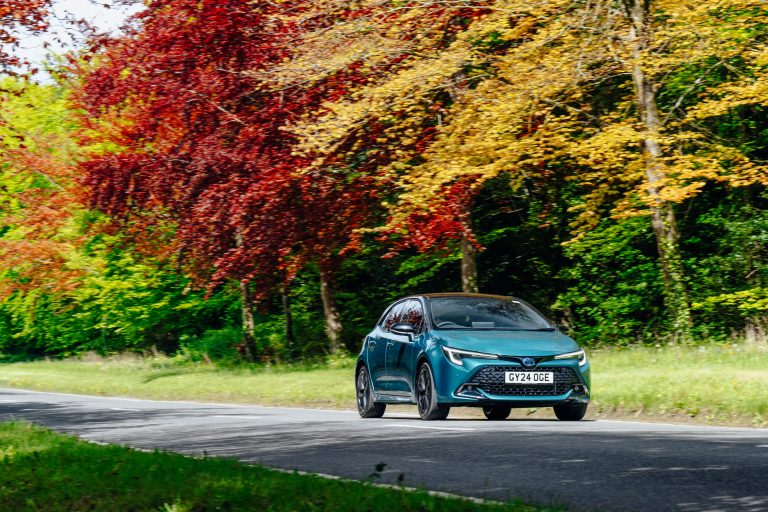Toyota Corolla proves reliant for robins
Wildlife visitors are warming the hearts of Toyota GB’s staff as a family of robins has chosen the rear wheel arch of a Toyota Corolla Excel 2.0, to build a nest in to raise its young. The company has released exclusive footage of the nest in the Corolla which is parked at Toyota GB’s press fleet garage in Crawley. The footage shows six baby robins being fed by their parents: Toyota Corolla robins recorded by a Go pro camera that was carefully placed so as not to disturb the birds.
The silver coloured Toyota Corolla hatchback had returned to the press fleet from long term loan with Autocar magazine and was in a quiet corner of the outdoor car park of the press garage, which is home to a 40 strong fleet of cars used for press test drives.
The nest was spotted by Toyota GB press fleet manager, Graham Bothamley, who said: ‘I noticed a pile of leaves around the base of the rear wheel arch of the Corolla on the 12 April and discovered a nest full of eggs balanced on the top of the wheel. With a carefully hidden Go Pro camera we’ve been able to watch the parent robins sitting on the eggs and now feeding the baby birds. You’d have thought the birds might have chosen one of our more famous cars, such as the Lexus LFA or Toyota Supra, but instead they chose the world’s best-selling model, the Corolla.’
Graham continues: ‘We saw signs in early April that the robins had tried to build a nest in our car wash area, but that’s usually very noisy, so we think that’s why they re-located to a quieter spot and with our car test drives on hold owing to the current lockdown, the family have plenty of peace and quiet.’
According to the RSPB* most robins’ nests are located on or near the ground in hollows, nooks and crannies, climbing plants, hedge banks, tree roots, piles of logs and any other situations which provides a fully concealed cavity. The fledglings are likely to leave the nest when they are 14 days old, although they cannot fly for a further two days. They will then be tended by their parents for up to three weeks after fledging.
ENDS
Note to editors:
- RSPB info source: *https://www.rspb.org.uk/birds-and-wildlife/wildlife-guides/bird-a-z/robin/nesting-and-breeding-habits/

